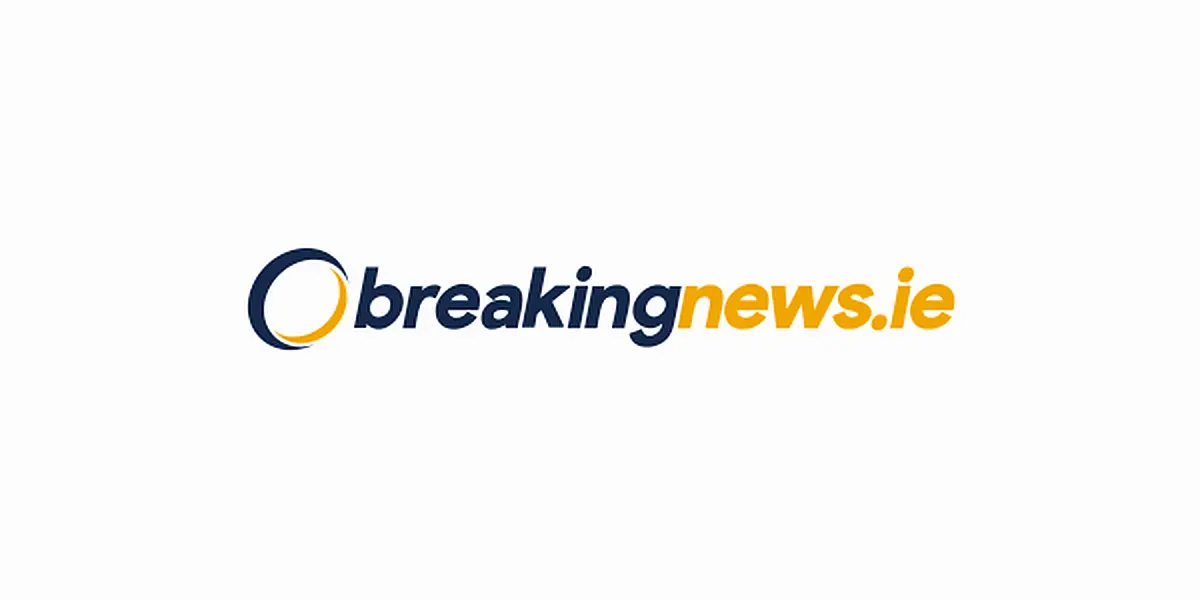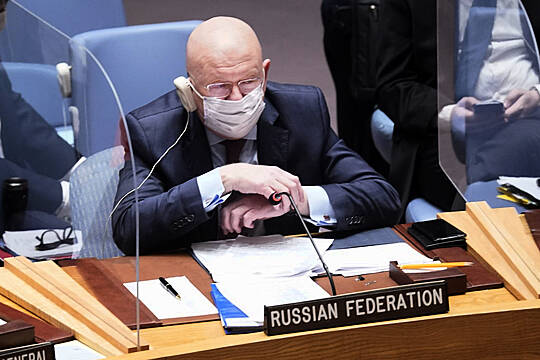The United States and Russia have squared off at the UN Security Council, where Moscow lost an attempt to block a public meeting on its troop build-up near Ukraine’s borders and Western fears of an invasion.
US ambassador Linda Thomas-Greenfield dismissed a charge by Russian ambassador Vassily Nebenzia that Washington was trying “to whip up hysterics” and use “megaphone diplomacy” by calling the first Security Council meeting on the crisis.
“Imagine how uncomfortable you would be if you had 100,000 troops on your border,” Ms Thomas-Greenfield said.
The vote on holding an open meeting passed 10-2, with Russia and China opposed, and three abstentions.

The vote needed nine votes to be approved.
UN undersecretary-general for political affairs Rosemary DiCarlo then went ahead with an open briefing, to be followed by speeches from the 15 council members.
US President Joe Biden said in a statement that the meeting was “a critical step in rallying the world to speak out in one voice” to reject the use of force, seek military de-escalation, support diplomacy and demand accountability from every member “to refrain from military aggression against its neighbours”.
The session kicked off more high-level diplomacy this week, although talks between the US and Russia have so far failed to ease tensions in the crisis.
Russia has massed the estimated 100,000 troops near the borders of its southern neighbour, stoking fears in the West of an invasion.
Russia denies it intends to launch an attack but demanded that Nato promise never to allow Ukraine to join the alliance, halt the deployment of Nato weapons near Russian borders, and roll back its forces from eastern Europe.

Nato and the US call those demands impossible.
Russian foreign minister Sergei Lavrov and US secretary of state Antony Blinken did not make any visible progress in easing the tensions at their meeting in Geneva earlier this month.
They are expected to speak by phone on Tuesday, according to the Russian Foreign Ministry.
Mr Biden warned Ukrainian President Volodymyr Zelenskyy in a phone call on Thursday that there is a “distinct possibility” Russia could begin an incursion in February, but the Ukrainian leader sought to play down the war fears, saying Western alarm over an imminent invasion has prompted many investors in the country’s financial markets to cash out.
Mr Zelenskyy said on Friday that “we aren’t seeing any escalation bigger than before”, and claimed that the Russian build-up could be an attempt by Moscow to exert “psychological pressure” and sow panic.
British Prime Minister Boris Johnson will visit Ukraine on Tuesday for talks with Mr Zelenskyy, and will speak to Russian President Vladimir Putin later on Monday, to urge him to “step back”, Mr Johnson’s office said.

Mr Johnson said he is considering sending hundreds of British troops to Nato countries in the Baltic region as a show of strength.
Kremlin spokesman Dmitry Peskov said on Monday that “hysteria promoted by Washington triggers hysteria in Ukraine, where people are almost starting to pack their bags for the front line”.
While Russia could try to block the Security Council meeting if it gets the support of nine of the 15 members, the US was confident it had “more than sufficient support” to hold it, according to a senior official in the Biden administration.
Any formal action by the Security Council is extremely unlikely, given Russia’s veto power and its ties with others on the council, including China.

Speaking on Sunday on ABC’s This Week, Ms Thomas-Greenfield said of Russia: “We’re going into the room prepared to listen to them, but we’re not going to be distracted by their propaganda.”
She said last week that council members “must squarely examine the facts and consider what is at stake for Ukraine, for Russia, for Europe, and for the core obligations and principles of the international order should Russia further invade Ukraine”.
On Friday, China’s UN ambassador Zhang Jun said both sides have shown willingness to continue negotiations and should be allowed to continue.
“Russia has said clearly they have no intention to have a war” and the Security Council should “help to de-escalate the situation instead of adding fuel to the fire”, Zhang said.







